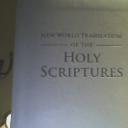Yahoo Answers is shutting down on May 4th, 2021 (Eastern Time) and beginning April 20th, 2021 (Eastern Time) the Yahoo Answers website will be in read-only mode. There will be no changes to other Yahoo properties or services, or your Yahoo account. You can find more information about the Yahoo Answers shutdown and how to download your data on this help page.
Trending News
Does anyone know the origin of the word "hell"?
What is the original definition of the word hell?
What was the definition of hell when the Bible was completed?
Additional Details
Please give the meaning and origin from a source other than scripture.
Dreamstuff Entity that reference is well after the completion of the Bible which makes it invalid in substantiating the definition of hell when the Bible was completed.
Very insightful edoedo!
Horsense...thank you for the info. So it is just as I suspected. Hell simply meant to cover over something; like with dirt. I have heard that the expression "hell potatoes" simply meant to cover them over with dirt or bury them. I guess sometime after the Bible was completed the word hell changed in meaning and that is part of the reason why people are confused about what God's word says about hell. Good response.
Zelophehad's Daughter...I am sure your father is proud of you. You explained your answer very concisely. My common sense suddenly felt not so common. Wonderful, let us know where you get your knowlege the next time, or if you agree with a reference already given. Please answer more questions in the future if you are able.
Edoedo...thank you for your plea for enlightenment and concern for fellow board members. Keep the passion!
15 Answers
- HorsenseLv 71 decade agoFavorite Answer
Hell:
"The modern English word Hell is derived from Old English hel, helle (about 725 AD) and ultimately from Proto-Germanic halja, meaning 'one who covers up or hides something' ". (Wikipedia)
". . . Transfer of a pagan concept and word to a Christian idiom, used in the K.J.V. for O.T. Heb. Sheol, N.T. Gk. Hades, Gehenna. . ." Online Etrmology Dictionary
"'Hades': Definition: "In the Septuagint Bible, the Greek translation of Sheol" - Etymology: From Greek á, literally "unseen". <allwords>
The original words in Scripture (Hebrew: sheol / Greek: hades) were mistranslated into the KJV Bible, as 'hell'. They actually mean, 'the grave' . . .
"What Are Sheol and Hades?"
- 1 decade ago
Hell if I know.
Let's see:
Etymology and Germanic mythology
"Hel" (1889) by Johannes Gehrts.
The modern English word Hell is derived from Old English hel, helle (about 725 AD to refer to a nether world of the dead) reaching into the Anglo-Saxon pagan period, and ultimately from Proto-Germanic *halja, meaning "one who covers up or hides something". The word has cognates in related Germanic languages such as Old Frisian helle, hille, Old Saxon hellja, Middle Dutch helle (modern Dutch hel), Old High German helle (Modern German Hölle), Danish, Norwegian and Swedish "helvede"/helvete (hel + Old Norse vitti, "punishment"), and Gothic halja. Subsequently, the word was used to transfer a pagan concept to Christian theology and its vocabulary (however, for the Judeo-Christian origin of the concept see Gehenna).
The English word hell has been theorized as being derived from Old Norse hel but it the cognate does appear in all the other languages and has a Proto-Germanic origin. Among other sources, the Poetic Edda, compiled from earlier traditional sources in the 13th century, and the Prose Edda, written in the 13th century by Snorri Sturluson, provide information regarding the beliefs of the Norse pagans, including a being named Hel, who is described as ruling over an underworld location of the same name. This is envisioned as a "misty" place (rather than the fire envisioned by Christianity) where go all women and in addition, some men. Punishment for wrong deeds is not mentioned.
- How do you think about the answers? You can sign in to vote the answer.
- HammsterLv 41 decade ago
"The modern English word Hell is derived from Old English hel, helle (about 725 AD to refer to a nether world of the dead) reaching into the Anglo-Saxon pagan period, and ultimately from Proto-Germanic *halja, meaning "one who covers up or hides something".[3] The word has cognates in related Germanic languages such as Old Frisian helle, hille, Old Saxon hellja, Middle Dutch helle (modern Dutch hel), Old High German helle (Modern German Hölle), Danish, Norwegian and Swedish "helvede"/helvete (hel + Old Norse vitti, "punishment"), and Gothic halja.[3] Subsequently, the word was used to transfer a pagan concept to Christian theology and its vocabulary[3] (however, for the Judeo-Christian origin of the concept see Gehenna).
The English word hell has been theorized as being derived from Old Norse hel[3] but it the cognate does appear in all the other languages and has a Proto-Germanic origin.[4] Among other sources, the Poetic Edda, compiled from earlier traditional sources in the 13th century, and the Prose Edda, written in the 13th century by Snorri Sturluson, provide information regarding the beliefs of the Norse pagans, including a being named Hel, who is described as ruling over an underworld location of the same name. This is envisioned as a "misty" place (rather than the fire envisioned by Christianity) where go all women and in addition, some men. Punishment for wrong deeds is not mentioned."
Source(s): Wikipedia is accurate (citation needed) - edoedoLv 71 decade ago
Lot people get the wrong idea about "Hell" because most of them are not telling people the truth. People said, "Burning in Hell forever is really myth; Actually , it is fire is a symbol of annihilation like cut off in death symbolized by fire ...... Job 14:13 O that in She´ol you would conceal me,
That you would keep me secret until your anger turns back,
That you would set a time limit for me and remember me!
Anyway lot of priests give people the wrong information about Hell, I would suggest you all contact Jehovah's Witnesses and they will be happy to explain it to you all.
- Bible TruthLv 51 decade ago
Webster’s Third New International Dictionary, unabridged, under “Hell” says: “fr[om] . . . helan to conceal.” The word “hell” thus originally conveyed no thought of heat or torment but simply of a ‘covered over or concealed place.’ In the old English dialect the expression “helling potatoes” meant, not to roast them, but simply to place the potatoes in the ground or in a cellar.
- BarbaraLv 45 years ago
For the best answers, search on this site https://shorturl.im/avBuP
It's short for "by our Lady" which is swearing against the queen. It's like saying g-d damned.
- Anonymous1 decade ago
Hel is originally the name of a norse goddess referenced in the Poetic Edda. She is the daughter of Loki and presides over a realm of the same name.
Source(s): http://en.wikipedia.org/wiki/Hel_(being) - Ceiling CatteLv 71 decade ago
I've seen 2 different etymologies for the word.
1, from protogermanic Heljo meaning light (cf Halo) which ties in with the comcept of Lucifer being the light bringer.
2, from latin Helan to cover.








